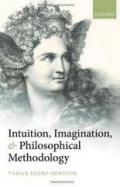Intuition, Imagination, and Philosophical Methodology

Concerns about philosophical methodology have emerged as a central issue in contemporary philosophical discussions. In this volume, Tamar Gendler draws together fourteen essays that together illuminate this topic. Three intertwined themes connect the essays. First, each of the chapters focuses, in one way or another, on how we engage with subject matter that we take to be imaginary. This theme is explored in a wide range of cases, including scientific thought experiments, early childhood pretense, thought experiments concerning personal identity, fictional emotions, self-deception, Gettier and fake barn cases, the relation of belief to other attitudes, and the connection between conceivability and possibility. Second, each of the chapters explores, in one way or another, the implications of this for how thought experiments and appeals to intuition can serve as mechanisms for supporting or refuting scientific or philosophical claims. Third, each of the chapters self-consciously exhibits a particular philosophical methodology: that of drawing both on empirical findings from contemporary psychology, and on classic texts in the philosophical tradition (particularly the work of Aristotle and Hume.) By exploring and exhibiting the fruitfulness of these interactions, Gendler promotes the value of engaging in such cross-disciplinary conversations to illuminate philosophical questions.